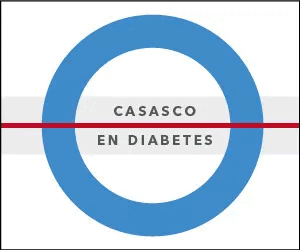Weight bias in the diagnosis and treatment of obesity
Keywords:
obesity, drugsAbstract
Weight bias refers to prejudices, stereotypes, and overtly negative attitudes toward people living with overweight or obesity that can be expressed explicitly or implicitly and also internalized. Explicit weight bias includes assumptions that people living with obesity are lazy, lack self-discipline or willpower, and do not comply with medical treatment. It can manifest itself in different ways and in different settings: discrimination in school and work settings, social stigmatization, and negative self-perception.
Different studies report that health professionals may also have prejudices that affect the quality of care they provide to patients with obesity, including lack of diagnosis and treatment. In addition, a systematic review of 33 studies found that weight stigma is positively correlated with obesity, diabetes risk, cortisol level, oxidative stress level, C-reactive protein level, eating disorders, depression, anxiety, and body image dissatisfaction.
On the other hand, the internalization of weight stigma refers to attitudes and thoughts about oneself, in which the belief about the lack of will to face an illness is adopted and acted upon as if it were true, leading to consequences in thoughts, attitudes, treatment seeking, and eating behavior. The way in which language is used in reference to obesity influences weight bias and that is why it has been highlighted in different treatment guidelines promoting the language “the person before the disease.” However, obesity drugs continue to be named and approved by regulatory entities as “weight loss drugs,” promoting a weight-centric and reductionist approach to the multifactorial nature of obesity and the need for an effective approach. At this point, it is important that drugs begin to be named and approved as “drugs for the treatment of obesity or anti-obesity drugs,” and thus prioritize the treatment of a complex and multifactorial disease.
References
-
Downloads
Published
How to Cite
Issue
Section
License
Copyright (c) 2024 on behalf of the authors. Reproduction rights: Argentine Society of Diabetes

This work is licensed under a Creative Commons Attribution-NonCommercial-NoDerivatives 4.0 International License.
Dirección Nacional de Derecho de Autor, Exp. N° 5.333.129. Instituto Nacional de la Propiedad Industrial, Marca «Revista de la Sociedad Argentina de Diabetes - Asociación Civil» N° de concesión 2.605.405 y N° de disposición 1.404/13.
La Revista de la SAD está licenciada bajo Licencia Creative Commons Atribución – No Comercial – Sin Obra Derivada 4.0 Internacional.
Por otra parte, la Revista SAD permite que los autores mantengan los derechos de autor sin restricciones.





































